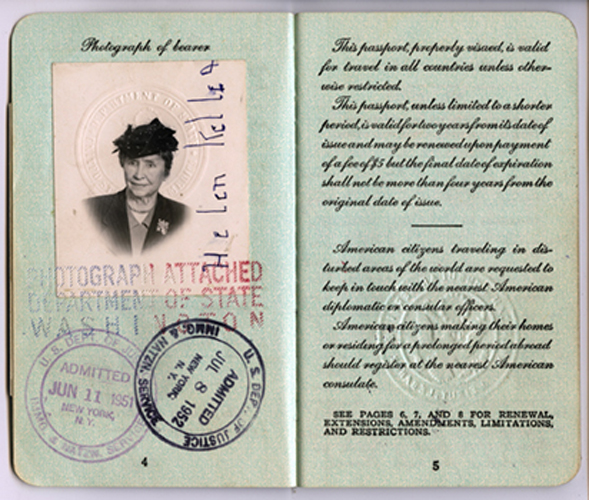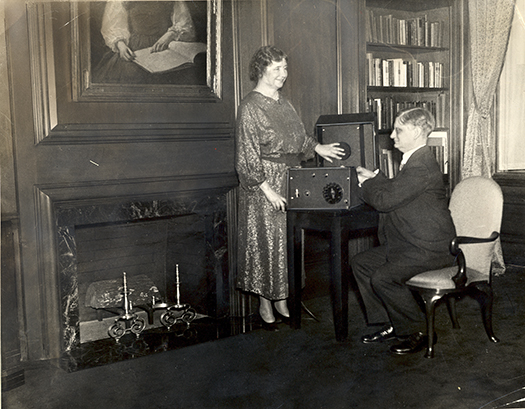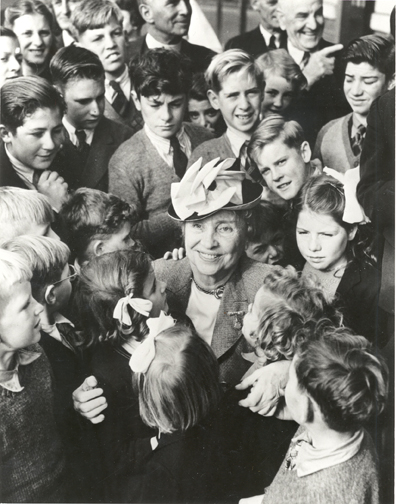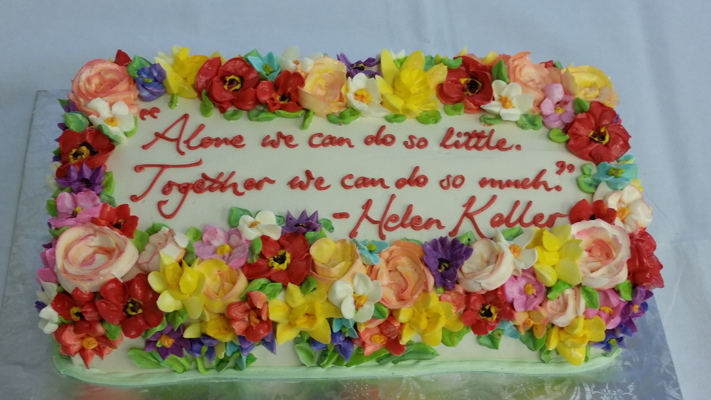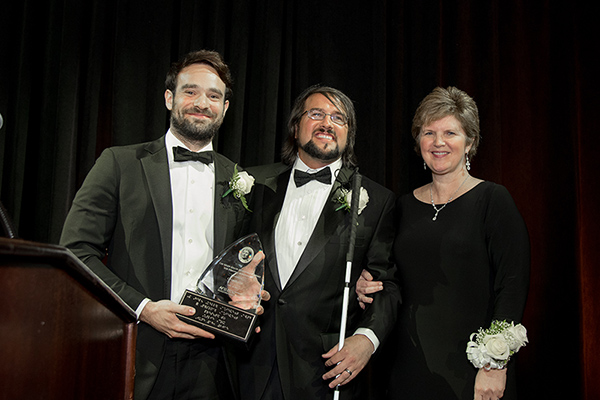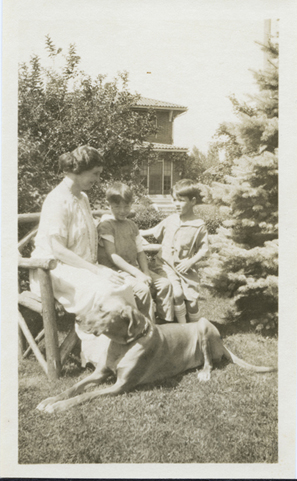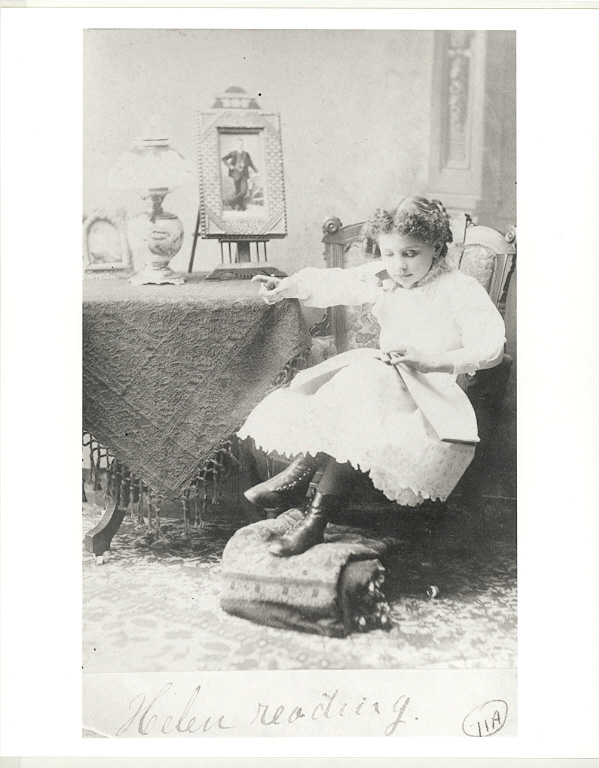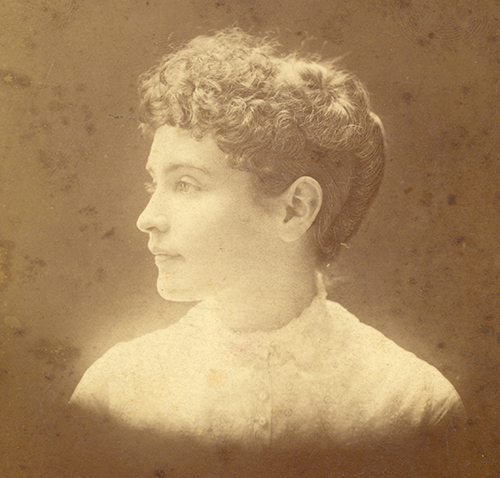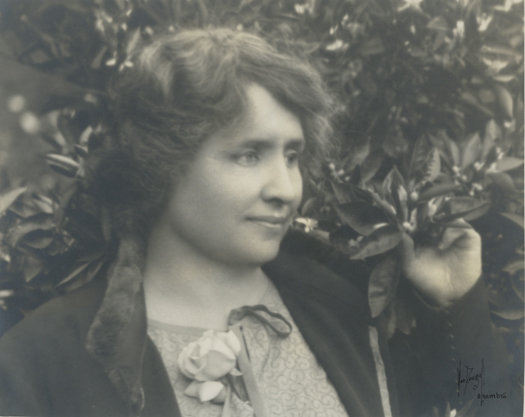Image: Inside pages from Helen Keller's passport issued December 1950, including headshot of Keller wearing a hat.
Helen Keller worked for the American Foundation for the Blind for more than 40 years. She was born in Tuscumbia, Alabama, on June 27, 1880, and became deaf and blind at 19 months. Few could have imagined the leading role she would go on to play in many of the significant political, social, and cultural movements of the 20th century. Until her passing in 1968, she worked unceasingly to improve the lives of people with disabilities. As caretakers of Helen Keller's archival collection and legacy, we are honored to share her history with you. Learn more about Helen Keller by exploring her letters, speeches, artifacts, and photographs in the Helen Keller Archive.
Image: Helen Keller with Robert Irwin, feeling the vibrations from the speaker of a Talking Book playback machine in the library of the American Foundation for the Blind, no date.
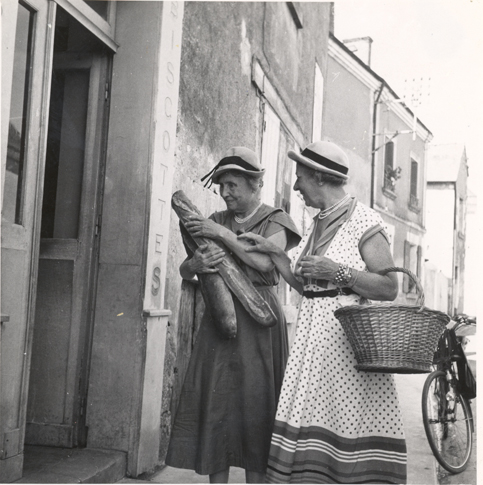
We are delighted to present the first of the many blog posts that will appear over the next two years as part of the Helen Keller Digitization Project. We are kicking off with a post by Kim E. Nielsen, professor of Disability Studies at the University of Toledo, and Helen Keller expert. Enjoy!
Helen Keller was born on June 27th 1880 and we've made a cake to celebrate her birthday! It's inscribed with the Helen's words "Alone we can do so little. Together we can do so much" This is very appropriate as we are also celebrating the beginning of our digitization project!
Helen Keller was interviewed in her home in Forest Hills, Queens by Hazel Gertrude Kinscella in 1930 for Better Homes and Gardens. The article, entitled "Helen Keller Sees Flowers and Hears Music" is excerpted here; it appeared in their May issue. Read on and enjoy!
"...You wish to know what home and garden mean to me,” she said, at once. "
Before there was Anne Sullivan Macy, there was Helen Keller’s mother: Kate Adams Keller. This sensitive and intelligent woman fought to find help for her young deaf and blind daughter when her child was an infant. Helen always spoke fondly of her mother’s intelligence and determination and corresponded with her mother continuously once she left Alabama and lived in Massachusetts.
Anne Sullivan Macy (1866-1936) was a woman whose brilliance, passion, and tenacity enabled her to overcome a traumatic past. She became a model for others disadvantaged by their physical bodies, as well as by gender or class.
Helen Keller reveled in nature. Her enjoyment of physical exercise and her love of the outdoors is beautifully captured in an article written 80 years ago this month and published in "The Guardian," a magazine "For Leaders of Camp Fire Girls." Read the transcription below and become inspired to stretch those limbs and enjoy the spring!
